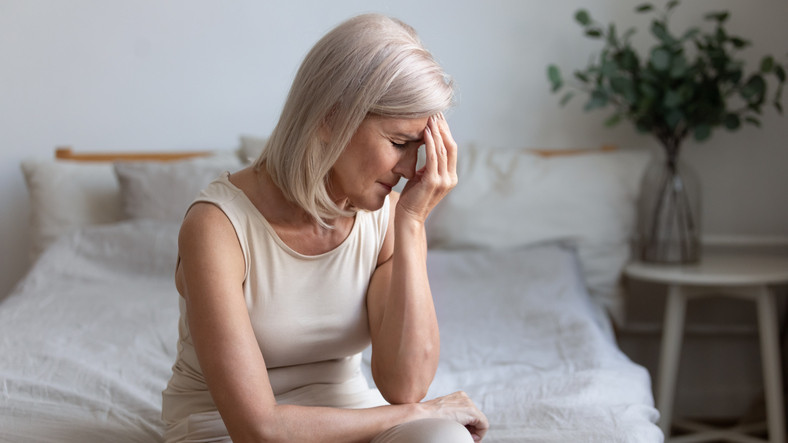Dizzy spells when you stand up: When should you worry?
If you are at risk of falling because of morning wooziness, tell your doctor.
- Reviewed by Howard E. LeWine, MD, Chief Medical Editor, Harvard Health Publishing; Editorial Advisory Board Member, Harvard Health Publishing

It's a common phenomenon with an uncommon name: orthostatic hypotension. It just means that when you shift from lying down or sitting to standing, your blood pressure drops and you momentarily feel a little woozy. That's because blood pools in your legs temporarily when you stand up, and it takes the body a moment to compensate by squeezing blood out of the large veins in your legs and revving up the heart a bit. The dizziness may strike after you eat a meal, because digestion diverts blood flow and may lower your blood pressure.
Up to 20% of people over 65 experience some degree of orthostatic hypotension. If it's occasional and the lightheaded feeling lasts less than 15 seconds, just be sure you stay well hydrated. But if it happens often or the episodes don't resolve quickly, you could fall and even black out. Then, it's time to call your doctor.
How to ward off wooziness
If lightheadedness when changing position is mild or occasional, you can take some practical steps to prevent it:
Check medications. A variety of medications can lower blood pressure. That contributes to a remarkable number of cases. It can help to lower doses or stop taking medications that you don't absolutely need—after consulting with your doctor, of course.
Get adequate fluids. Another common trigger is dehydration. Your blood is mostly water, and the volume in your system can drop overnight and lower your blood pressure. This helps explain why dizziness upon rising from bed is so common. Drinking a lot of water before bedtime is not the best solution, since it can send you racing to the bathroom at night. Wait until you are up and around to start taking fluids, and get enough throughout the day.
Rise slowly. After sleeping, sitting for an extended period, or eating a full meal, take your time rising to a standing position. It may help to clench your leg muscles before standing to push the pooled blood into your system.
Change your eating habits. If dizziness strikes after meals, try eating smaller but more frequent meals. It may also help to limit how many rapidly digested carbohydrates you eat in one sitting, such as white bread and other foods made with highly refined flour, white rice, potatoes, and sugary beverages.
Get moving. A bit of light exercise in the morning can also help to get the blood moving and your blood pressure up. Also, avoid standing in place or sitting for too long, because this increases pooling of blood in the legs.
Don't take risks when rising
If you ever lose consciousness when standing up — even for a moment — or if you fall, tell your doctor right away. Medications are available to treat orthostatic hypotension if necessary. But try the easy stuff first. It's often a lot of little things, and often if you make small changes in a couple of areas you make it better so you don't need to use medication.
Image: fizkes/Getty Images
About the Reviewer

Howard E. LeWine, MD, Chief Medical Editor, Harvard Health Publishing; Editorial Advisory Board Member, Harvard Health Publishing
Disclaimer:
As a service to our readers, Harvard Health Publishing provides access to our library of archived content. Please note the date of last review or update on all articles.
No content on this site, regardless of date, should ever be used as a substitute for direct medical advice from your doctor or other qualified clinician.















